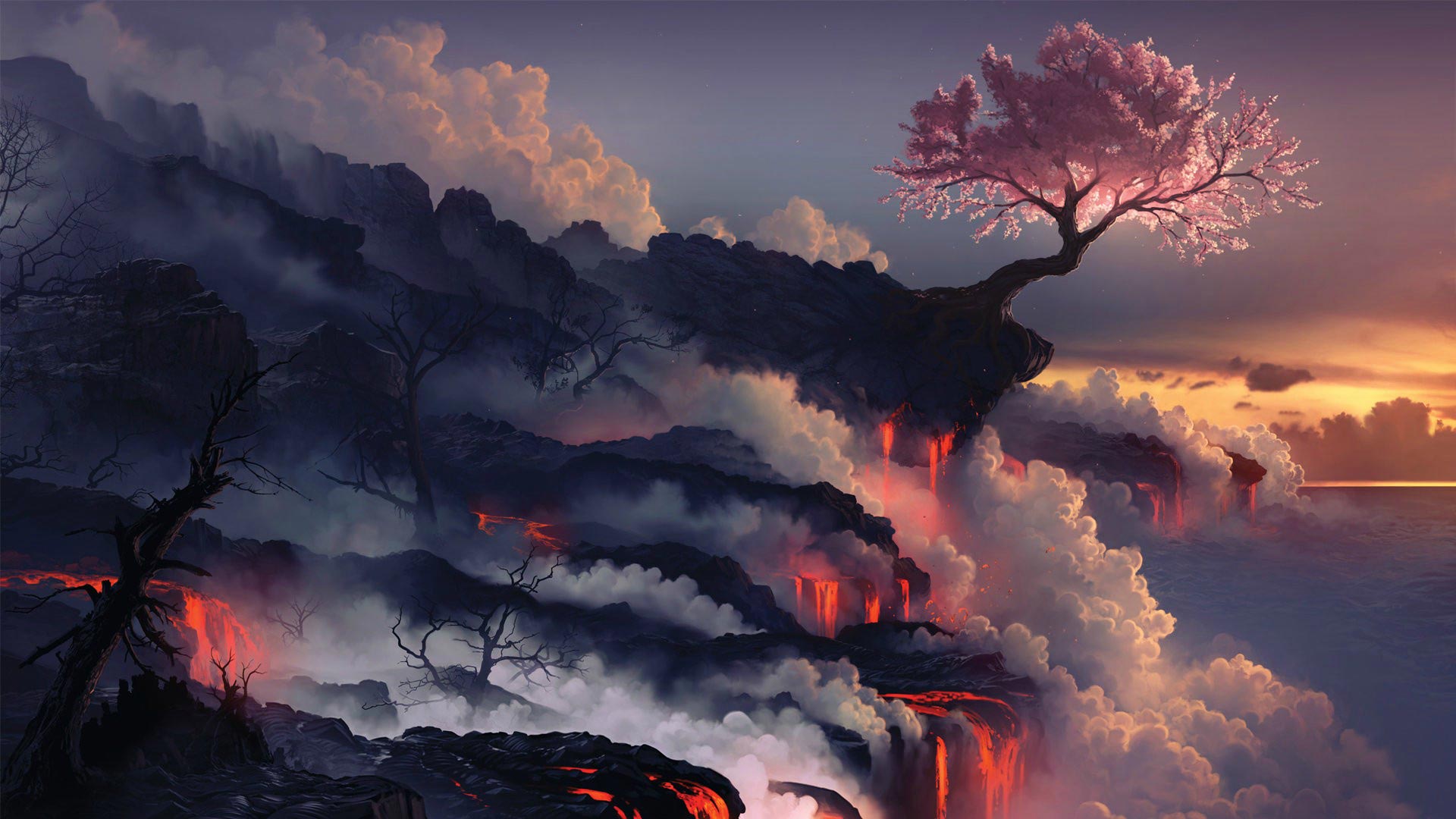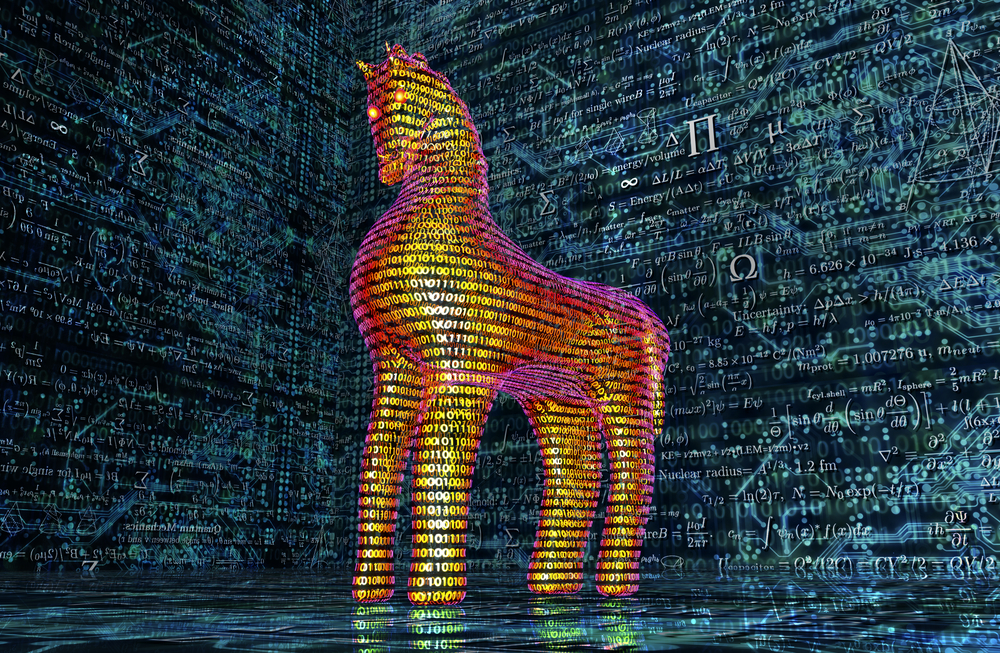We are all perfectly trapped in our own realities – we’re trapped every inch of the way with no sign that we will ever be not trapped, with no sign that we will ever have the slightest awareness of what’s actually going on. We carry on quite happily – or unhappily, as the case may be. Whether we’re having a good time or a bad time makes not the slightest bit of difference – either way we’re still just as trapped. One way we’re trapped in ‘feeling good’, the other way we’re trapped in ‘feeling bad’! These are two room in the same prison.
What does it mean though to say that we’re ‘trapped in our own realities’? How could we possibly be ‘trapped in reality’? We can’t be trapped in reality – that would imply that there was somewhere else we could go, somewhere freer or less restrictive! That’s a contradiction in terms. It’s not that we’re trapped in reality however – that’s not what we said. What we’re trapped in of course is our own personal version of reality. We’re trapped in our limited understanding of reality.
The reason we’re trapped in our own personal version of reality is because we’re always reading into it – just as I might read into what people are saying to me if I were to be suffering from acute paranoia. We’re not seeing what’s actually there, we’re seeing what seems to be there as far as we’re concerned. We’re seeing our own fears and hopes reflected back at us; we’re seeing what the world means to us on the basis of our unexamined (or ‘unconscious’) agenda for it. When it comes right down to it we’re only interested in stuff which relates to our own personal angle on things, stuff which relates to our particular perceptual/cognitive bias. It’s as if I am measuring everything with a ‘sacred yard-stick’ and if there is something that can’t be measured with this standard, this yardstick then as far as I am concerned it just doesn’t exist.
There is no better way to get trapped than this! We get trapped in our prejudices because they are our prejudices; we get imprisoned by our biases because they are our biases. What could be easier than getting trapped in a world that is made up of our own prejudices, our own biases, our own assumptions? We’re never going to look beyond the world that is constructed out of our own unexamined or unconscious assumptions precisely because they are our assumptions.
There is no more perfect trap than the trap of self-reference. We get trapped because of our agreement with ourselves, and when are we not going to agree with ourselves? We are agreeing with ourselves to be trapped. We’re trapping ourselves, therefore. Or we could also say that we are getting trapped in ourselves. The trap of self-reference works because we only ever see the world in the way that we ourselves see it! We have some kind of an expectation about ‘what is to happen’ and so when that thing does happen we don’t look any further. Why would we look any further when we have already decided – without even knowing that we have decided – that there IS no ‘further’?
It’s not that we are expecting anything in particular to happen (although of course we might) – it’s that we expect the world to appear in that particular way that it always does appear to us. Or to put this another way, we are only interested in the world as it looks like from our own particular viewpoint on the matter. We have already decided – without knowing that we have decided – that this is the only way the world can appear. As far as we are concerned the world doesn’t exist apart from in this personalized format of it; as far as we are concerned there is simply no such thing as ‘the world as it might appear to any viewpoint other than our own’. This is just another way of saying that ‘we never question our assumptions’, of course, or that we never look further than our own ‘ideas’ about things. This ‘infinite inertia’ with regard to questioning our assumptions or looking further than our own ideas about things is what makes us who we are.
The essential prejudice (or bias) that we’re talking about here is the prejudice or bias of seeing the world from the point of view of this self, therefore. The self (or the ‘me’) is the prejudice, is the bias. The self only gets to be the self by deciding in advance – without it knowing that it has decided anything – that ‘the world as it appears to this limited viewpoint’ is the only world there is. We have made the assumption that the world as it is or might be isn’t significant, that it doesn’t have the slightest value to us. This is the key assumption underlying or underpinning the self’s (apparent) existence – unless we make this assumption – and completely ignore the fact that we have made it – there can’t be a self. The self is an arbitrary cut-off point in our interest, in other words.
So wherever we go and whatever we do we are always met with this self-referential illusion of ‘how the world appears to me’ or ‘how the world appears when we’re not looking beyond any of our assumptions about it’. What we see is a kind of movie that is tailor-made for this self, this ‘me’. The movie that we’re talking about here is continuous – it never stops playing and it is – for the most part – entirely absorbing for us. We’re sitting there in the cinema with a box of popcorn in one hand and a litre and a half of coke in the other; or maybe we’re sitting at home in front of the TV with a slice of pizza in one hand and the remote in the other…
What keeps us absorbed is ‘like and dislike’ – if one doesn’t do the job then the other will! When the movie or show is interesting in an enjoyable way then of course it’s absorbing – to be enjoying something is to be absorbed by it, engrossed by it. All of our attention is taken up by it, as if by a powerful magnet. But then when the movie or show is disagreeable or frightening we’re still absorbed by it, engrossed by it, swallowed up by it. Our attention is still being pulled in magnetically by the drama. Now we are fixated by our aversion, whereas before we were fixated by our attraction.
Sometimes the ‘movie’ which is our own personalized version of reality isn’t that exciting for to, either in a positive or negative way. The entertainment value can dwindle right down to zero and we’re left kicking our heels, but even then we have attachment to it. We always have attachment to the narrative, even when we’re being bored silly by it! If I am bored or frustrated or fed up by my story of what is going on then I am attached to it by my dysphoric reaction to it, by my automatic resistance to it. The fact that I am complaining about it keeps me stuck to it! Rather than being bored and complaining to myself about being bored I might be distracting myself – as we always do – by thinking about this and that. That way I’m making my own movie inside my head – a movie within the movie. The only way we could ever be not-attached would be if we could follow what is going on in our lives without getting caught up in automatic like and dislike, without resorting to self-distraction when we are bored. This (being with what is happening to us without getting caught up in like and dislike) is however the one thing we will never do; reacting or self-distracting happen automatically as a kind of ‘default operation’, but actually being present in our lives doesn’t.
There is a factor militating against us not being continuously caught up in our reacting and distracting and that factor is not at all obvious to us. We stand to lose something if we stay present in the ongoing drama and what we stand to lose is ourselves. As soon as we stop being absorbed in the movie which is our own personalized version of reality we lose the perception of (or belief in) ourselves as being ‘who or what we always think we are’. We have to sacrifice our ‘idea of ourselves’, in other words and this is the one sacrifice we don’t ever want to make! We will have to say goodbye to our most precious assumption if we take a break from being absorbed or fixated by the show – we will have to say goodbye to the assumption that is ourselves…
Instead of saying that we are compulsively watching a movie or a show we could say that we are greedily eating some kind of a feast. We’re so engrossed in eating the feast that is there on the table in front of us that if someone comes into the room we don’t look up to see who it is. We’re too busy stuffing our faces to look up. Our attention is completely dedicated to the task of eating – we simply don’t care about anything else. It is true that in a number of ways it is a very peculiar or unlikely type of ‘feast’ that we’re talking about here – it’s the type of feast where we never get full up and we never do anything else than keep on partaking. The only time we might take a break is when we fall asleep and even then the chances are that we’re still going to be snacking intermittently in our sleep, in a somnambulistic kind of a fashion. The other peculiar thing is that we’re only enjoying the feast half of the time – the other half of the time we’re having a disagreeable experience rather than an agreeable one. We’re still eating but we’re not enjoying it – in fact we’re having a rotten time eating. But whether we’re enjoying the feast or hating it we can’t stop what we’re doing – we’re equally fixated either way.
The ‘feast’ that we’re talking about here is the feast of our own personal narrative, the feast of our ongoing story of who we are and what is going on for us. Now we could look up from the feast if someone came into the room; we could take our attention off the ongoing show or drama. There’s nothing physically stopping us – we’re perfectly free to look up and take an interest in something else other than the mind-created narrative. The only thing is however that if we do so then not only would the drama or narrative be interrupted, but so too would our ongoing perception of (or belief in) the one to whom the drama or narrative is happening. We would be left with this strangely empty perception of ‘no drama’ and ‘no one for the drama to be happening to’. There would be no ‘self’ to reference everything to. We would have an experience of what Buddhists call ‘emptiness’, in other words. Such a perception is generally very spooky and threatening to us because it invalidates the ‘core assumption’ that we are so very attached to – the assumption of the self.
As we said earlier, the self only gets to be the self because of this key ‘cutting-off point’ in our interest – we’re not interested in what life might look like outside of our own habitual perception of it. We’re not interested in what reality might be ‘in itself’; we’re only interested in how it appears in relation to us. Or as we could also say, we’re not interested in the question of what life would be like when it’s not constantly confirming our existence, either through agreeing with our prejudices or disagreeing with them. There is nothing less interesting to us that this! As we have said, the cut-off point in our attention doesn’t just create the self, it IS the self. This arbitrary cut-off point in our interest (the existence of which is itself of zero interest to us) is what the self is and so just as long as we very strongly identify with this self (and take its well-being to be the same thing as our well-being) we are never going to be ‘not trapped in our own reality’. We’re always going to be imprisoned by what Carlos Castaneda calls ‘the chains of our self-reflection‘.
This – as we said right at the beginning of this discussion – is the most perfect trap there ever was. It’s a trap we can’t see to be a trap. It’s a trap that we can’t see to be a trap because we think it’s the whole world. And yet of course it isn’t the world. It’s far from being the world – it isn’t actually anything!






